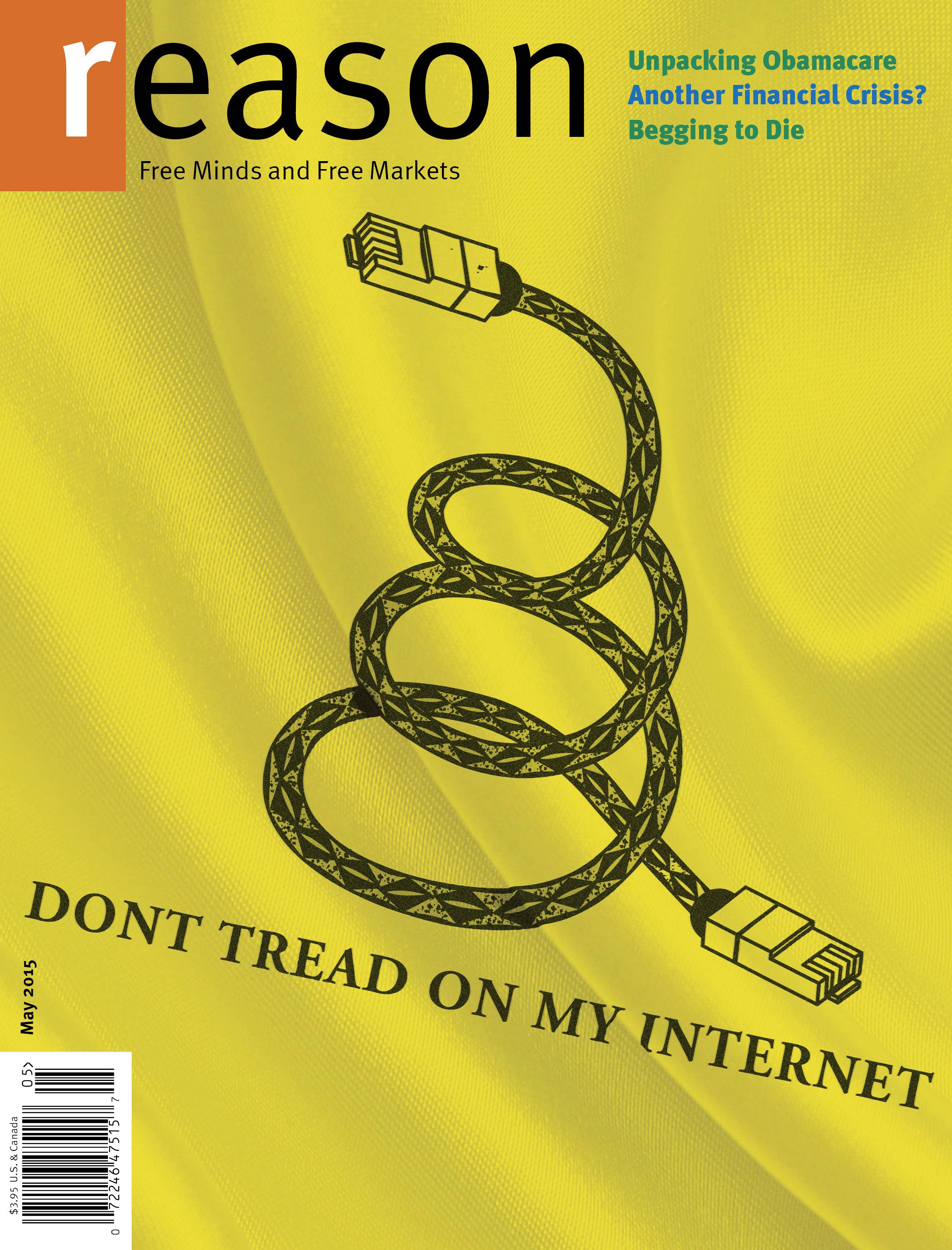Net Neutrality Is Officially Dead. That's a Victory for Free Speech.
The policy was "a solution that won't work to a problem that doesn't exist."

Today marks the end of the net neutrality rules enacted in 2015. Passed after President Barack Obama actively pushed for it, the "Open Internet Order" allowed the the Federal Communications Commission (FCC) to regulate the business practices of internet service providers (ISPs) and mobile carriers under regulations originally designed for the old Bell Telephone monopoly.
Supporters of net neutrality, including companies such as Netflix, Google, Facebook, Twitter, and Amazon, argue that ISPs have too much control over the "pipes" of the Internet and would engage in all sorts of content discrimination absent such rules.
Opponents of net neutrality, including me and most everyone at Reason, argue that bad actions only rarely and sporadically happened before the imposition of such rules and were easily remedied without giving the government enormous power to dictate business practices.
Earlier this year, the FCC reported on recent trends in the growth of broadband:
From 2012 to 2014, the number of Americans without access to both fixed terrestrial broadband and mobile broadband fell by more than half—from 72.1 million to 34.5 million….But the pace was nearly three times slower after the [net neutrality rules were imposed], with only 13.9 million Americans newly getting access to both over the next two years.
As of year-end 2016, 92.3% of all Americans have access to fixed terrestrial broadband at speeds of 25 Mbps/3 Mbps, up from 89.4% in 2014 and 81.2% in 2012.
Nonetheless, over 24 million Americans still lack fixed terrestrial broadband at speeds of 25 Mbps/3 Mbps.
Keep in mind, of course, that current commissioner Ajit Pai (read Reason interviews with him here and here) was opposed to net neutrality. But nobody is really challenging those stats.

Whatever side of the debate you're on, net neutrality is, at least for now, a dead letter. Supporters will continue to push for its return and could ultimately prevail. All of this sets up a powerful and, I hope, illuminating natural experiment. Before 2015, we had an internet that was lightly regulated. From 2015 til now, the net was governed by stricter rules. From now until the rules may be reinstated, we'll be back to a light-touch regime. Let's see if anyone notices a real difference in his or her online experience.
My bet: The internet will continue to improve, both in terms of the speed of connection and the range of content, applications, and experiences we'll be accessing. As economist and net neutrality critic Tom Hazlett suggests, there may well be "paid prioritization" and continuing attempts to build "walled gardens" like Facebook's, but they will flourish or die based on whether they serve consumers' interests and needs. The advent of 5G and other technologies that will add to the competitive marketplace for internet access will make current arguments about net neutrality completely moot.
At the same time, there is a low-grade war on free expression going on in the country. Most, if not all, of that is happening at the platform level or from the government, not the easily vilified ISPs. That's one of the takeaways from the recent congressional testimony of Facebook's Mark Zuckerberg. Republicans and Democrats alike told the social-media magnate they wanted to regulate his business sector, and he happily agreed. Twitter, Google (including YouTube), and other companies are policing speech more than ever and eliminating, demonetizing, and punishing "bad" actors, sometimes to curry favor with the government and sometimes to curry favor with users. The "safe harbor" provision known as Section 230 that long protected websites and ISPs from being prosecuted for crimes committed by their users has been "decimated" by new laws aimed at ending sex trafficking. In this context, anything that takes away the government's power to govern the internet has to be seen as a win for free speech.
Last week, I participated in an Intelligence Squared debate on the question of Net Neutrality. The proposition under discussion was "Preserve Net Neutrality: All Data Are Created Equal." Defending that proposition were former FCC chief Tom Wheeler, who instituted the Open Internet Order of 2015, and the head of Mozilla, Mitchell Baker. Joining me in arguing against the proposition was Michael Katz, a Berkeley economist and former chief economist at the FCC. It was an Oxford-style debate, so the audience voted before and after the debate; the winner is the team that gains more votes. The pre-debate vote was 60 percent for the resolution, 23 percent against, and 17 percent undecided. The post-debate vote was 60 percent for the resolution, 31 percent against the motion, and 9 percent undecided. So Katz and I technically chalked up a win, despite the high level of support for the other side.
You can watch the debate by clicking below.
A transcript, commentary, and more are here.


Show Comments (113)